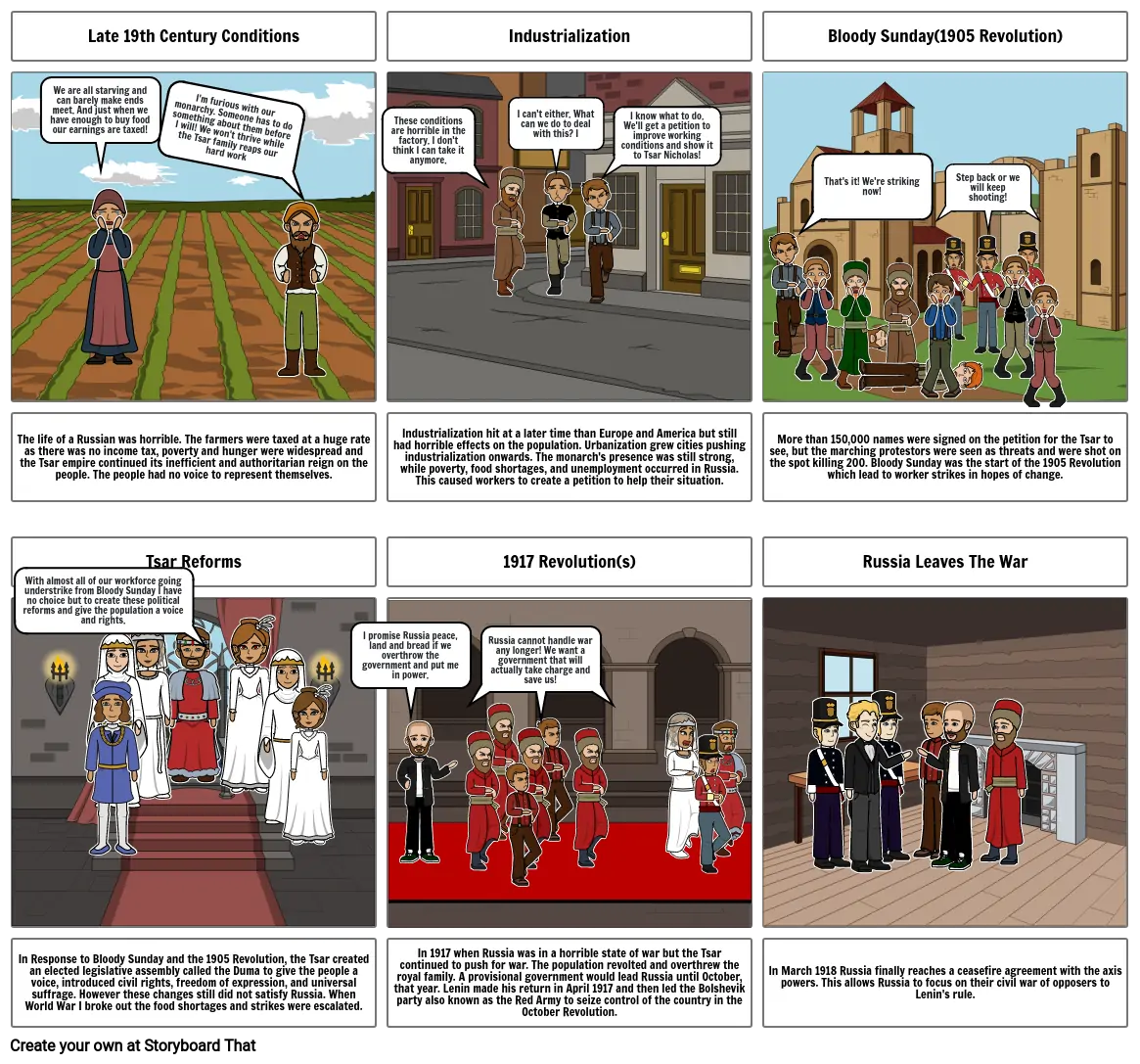Russian Monarchy To Soviet Communism

Текст Раскадровки
- Late 19th Century Conditions
- We are all starving and can barely make ends meet. And just when we have enough to buy food our earnings are taxed!
- I'm furious with our monarchy. Someone has to do something about them before I will! We won't thrive while the Tsar family reaps our hard work
- These conditions are horrible in the factory. I don't think I can take it anymore.
- Industrialization
- I can't either. What can we do to deal with this? I
- I know what to do. We'll get a petition to improve working conditions and show it to Tsar Nicholas!
- Bloody Sunday
- That's it! We're striking now!
- Step back or we will keep shooting!
- The life of a Russian was horrible. The farmers were taxed at a huge rate as there was no income tax, poverty and hunger were widespread and the Tsar empire continued its inefficient and authoritarian reign on the people. The people had no voice to represent themselves.
- Tsar Reforms
- With almost all of our workforce going understrike from Bloody Sunday I have no choice but to create these political reforms and give the population a voice and rights.
- Industrialization hit at a later time than Europe and America but still had horrible effects on the population. Urbanization was common growing city populations and pushing industrialization. The monarch's presence was still strong, while poverty, food shortages, and unemployment occurred in Russia. This caused workers to create a petition to help their situation.
- 1917 Revolution
- More than 150,000 names were signed on the petition for the Tsar to see, but the marching protestors were seen as threats and were shot on the spot killing 200. Bloody Sunday was the start of the 1905 Revolution which lead to worker strikes in hopes of change.
- In Response to Bloody Sunday and the 1905 Revolution, the Tsar created an elected legislative assembly called the Duma to give the people a voice, introduced civil rights, freedom of expression, and universal suffrage. However these changes still did not satisfy Russia. When World War I broke out the food shortages and strikes were escalated.
Создано более 30 миллионов раскадровок

